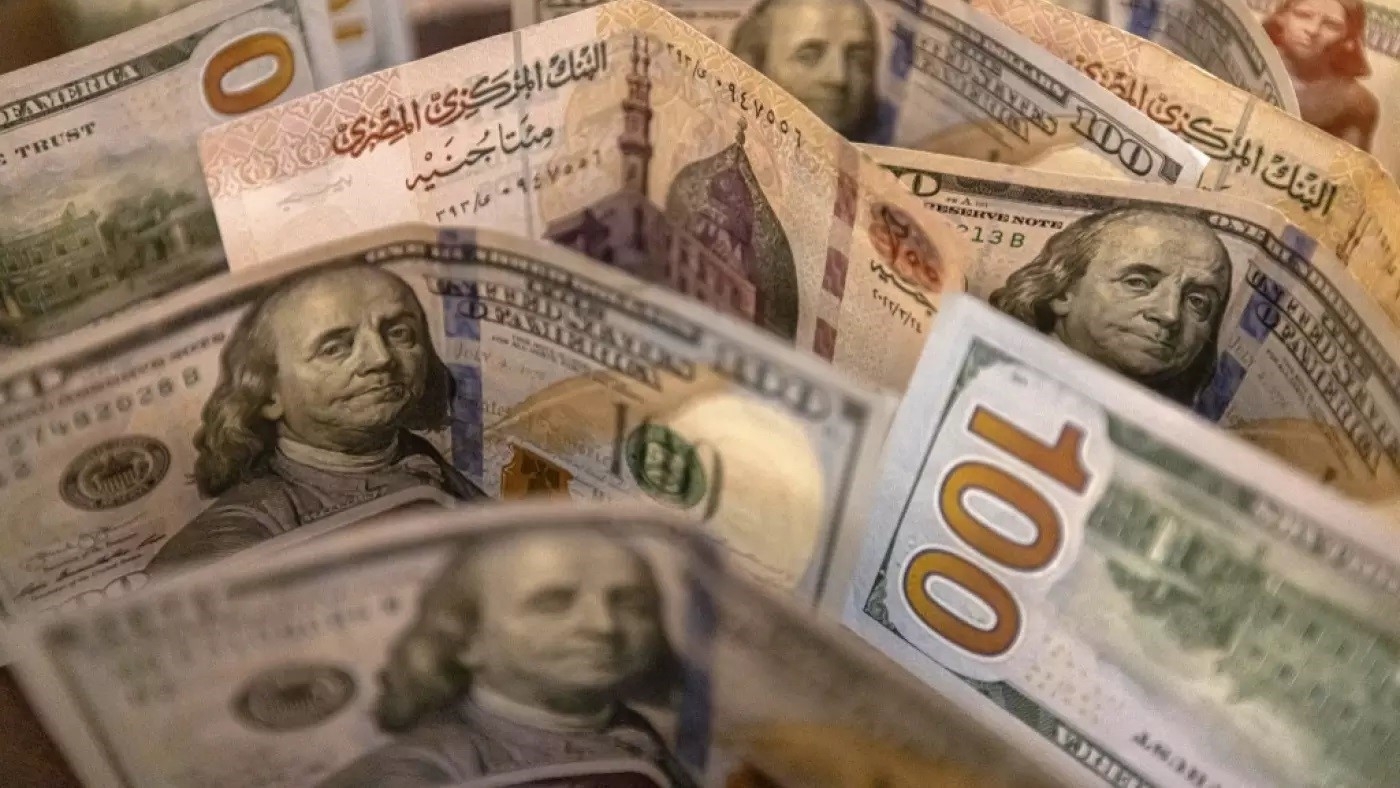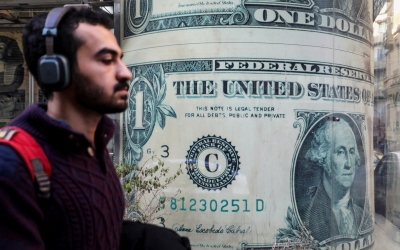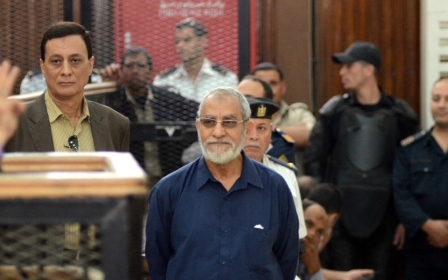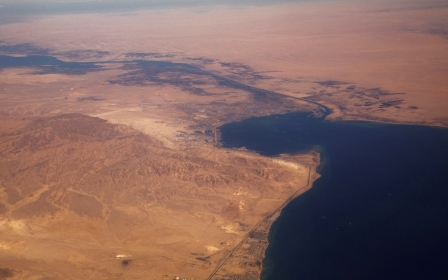Egypt pound loses more than 35 percent after devaluation, raising inflation fears

Egypt's government hiked interest rates and let its currency trade freely as it attempts to stabilise its economy, the Central Bank of Egypt (CBE) announced on Wednesday.
The CBE announced it was raising its key rate by an unprecedented six points to a record 27.25 percent, which caused the Egyptian pound to fall by more than a third of its value against the dollar, bringing the official rate closer to the black market rate.
Following this decision, the pound plummeted to approximately 50.5 EGP to the US dollar, at 14:00 local time, down from 31 prior to the decision. This almost matches the blackmarket rate of 50.78 recorded at the same time.
"The unification of the exchange rate is crucial as it helps eliminate foreign exchange arrears by reducing the gap between the official and black market exchange rates," said the statement, resulting from the meeting of its monetary policy committee.
The impact of the devaluation on inflation remains uncertain, as the import-dependent economy already relied on blackmarket rates. Egypt's headline inflation reached 33.7 percent in December.
Oxford Economics think tank has predicted that switching to a flexible exchange rate regime would lead to a peak of annual inflation in the fourth quarter of 2024 to 45 percent.
Egypt is the most populous country in the Arab world, with more than 106 million inhabitants. The World Bank estimates that nearly 30 percent of Egypt's population was poor in 2019 and many millions at risk of falling below the poverty line.
Egypt has already devalued its currency four times since March 2022, while negotiating a new bailout deal with the International Monetary Fund (IMF), which has demanded a move towards a flexible exchange rate. The deal, initially worth $3bn, is expected to reach $10bn as Egypt grapples with a shortage of foreign currency and record high debts.
Foreign debt has quadrupled, reaching $164bn since Abdel Fattah el-Sisi became president nearly a decade ago. Debt servicing is currently consuming most of the state's annual expenditures.
Meanwhile, the value of the pound dwindled by more than 600 percent since June 2014, when it traded at about seven to the dollar.
While Egypt's total foreign currency reserves are $35bn, the country is due to pay $34.8bn in external debt servicing in 2024 alone, according to a report by the Central Bank.
Two weeks ago, Egypt agreed to a $35bn deal with the United Arab Emirates to develop the area of Ras el-Hekma on its northwestern coast. The government hailed it as the biggest in the country's history. Economists expected the immediate cash inflow from the deal to facilitate currency devaluation and the agreement with the IMF.
Expected rise in fuel and food prices
As a reaction to the currency decision, many Egyptians on social media shared statements by Sisi last year in which he said his government would not accept a major devaluation that would affect food prices.
“When the exchange rate affects the lives of Egyptians ... we cannot sit still," he said.
"You are saying today that a kilo of meat costs 300 pounds, why? Because the exchange rate is 30 and 35, so if you still want to make it 50 and 60, what should the citizen do?” the president said.
Many food products are already priced according to black market pound prices, which dropped as low as 70 pounds against the US dollar in recent months.
“Since last year, we have gradually seen prices rise based on the pound rate on the black market,” Mohamed Gad, an economics researcher at the Egyptian Center for Economic and Social Rights, told Middle East Eye.
“Importers' dependence on the black market US dollar made them raise prices of consumer products,” he added.
As a result of the current flotation, Gad anticipates another hike in the price of basic commodities that are priced at the official pound rate and have already been fixed by the government, such as fuel, wheat, and subsidised bread.
According to Gad, pricing chaos already exists. “Many traders are taking advantage of the crisis and raising prices, so it is difficult to predict what level inflation will reach at this time,” he added.
Mohamed Abdallah, an owner of a small market in Cairo's Agouza, said he changes the prices of the products on his cashier machine each time he receives a new shipment, depending at what prices he buys the new goods.
He mentioned that a packet of green tea was worth 91 EGP (1.84 USD) two weeks ago, but now he sells it at 145 Egyptian pounds (2.93 USD) and “this will change again and again,” he told MEE.
Meanwhile, Mostafa, a private company employee who preferred to use only his first name, said that the decision to devalue the currency was expected due to the IMF’s conditions, but he fears the consequences of a lack of government control on the currency market.
“The central bank's announcement that the exchange rate would be determined by market forces made me concerned about the idea that the prices that we had expected to fall after the Ras el-Hekma deal would rise even more,” he told MEE.
He added that when Cairo receives the IMF loan, together with the funds from the Ras el-Hekma deal, the impact on markets may not be visible until four or five months later.
“I feel more concerned about the current situation, since prices are not going down and they vary from one place to another, and given that there is no control from the authorities on prices,” he added.
* Azza Guergues contributed to this report from Cairo.
Middle East Eye propose une couverture et une analyse indépendantes et incomparables du Moyen-Orient, de l’Afrique du Nord et d’autres régions du monde. Pour en savoir plus sur la reprise de ce contenu et les frais qui s’appliquent, veuillez remplir ce formulaire [en anglais]. Pour en savoir plus sur MEE, cliquez ici [en anglais].





